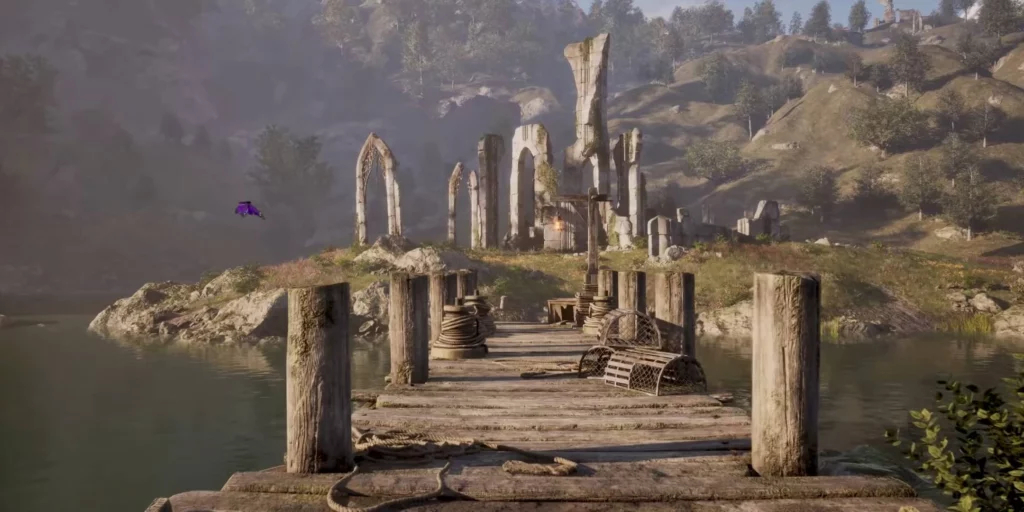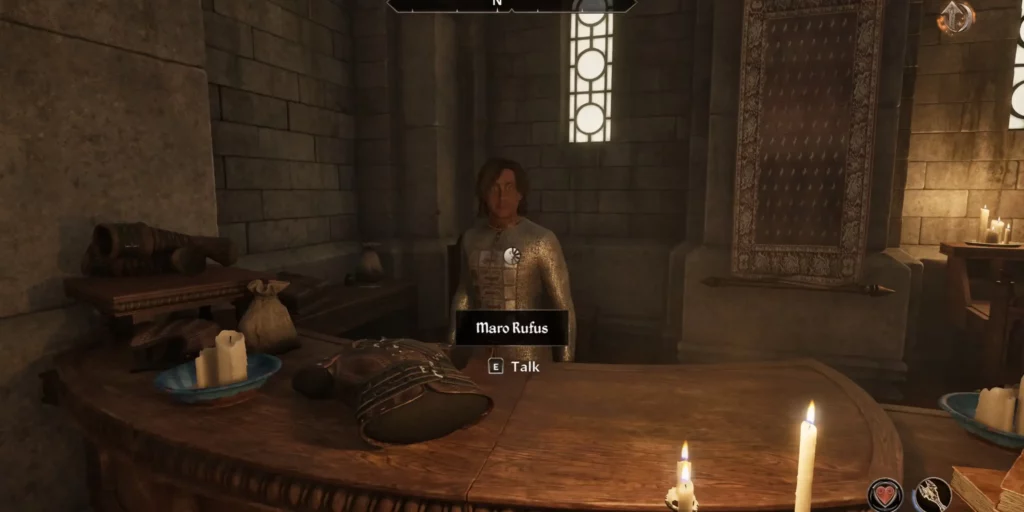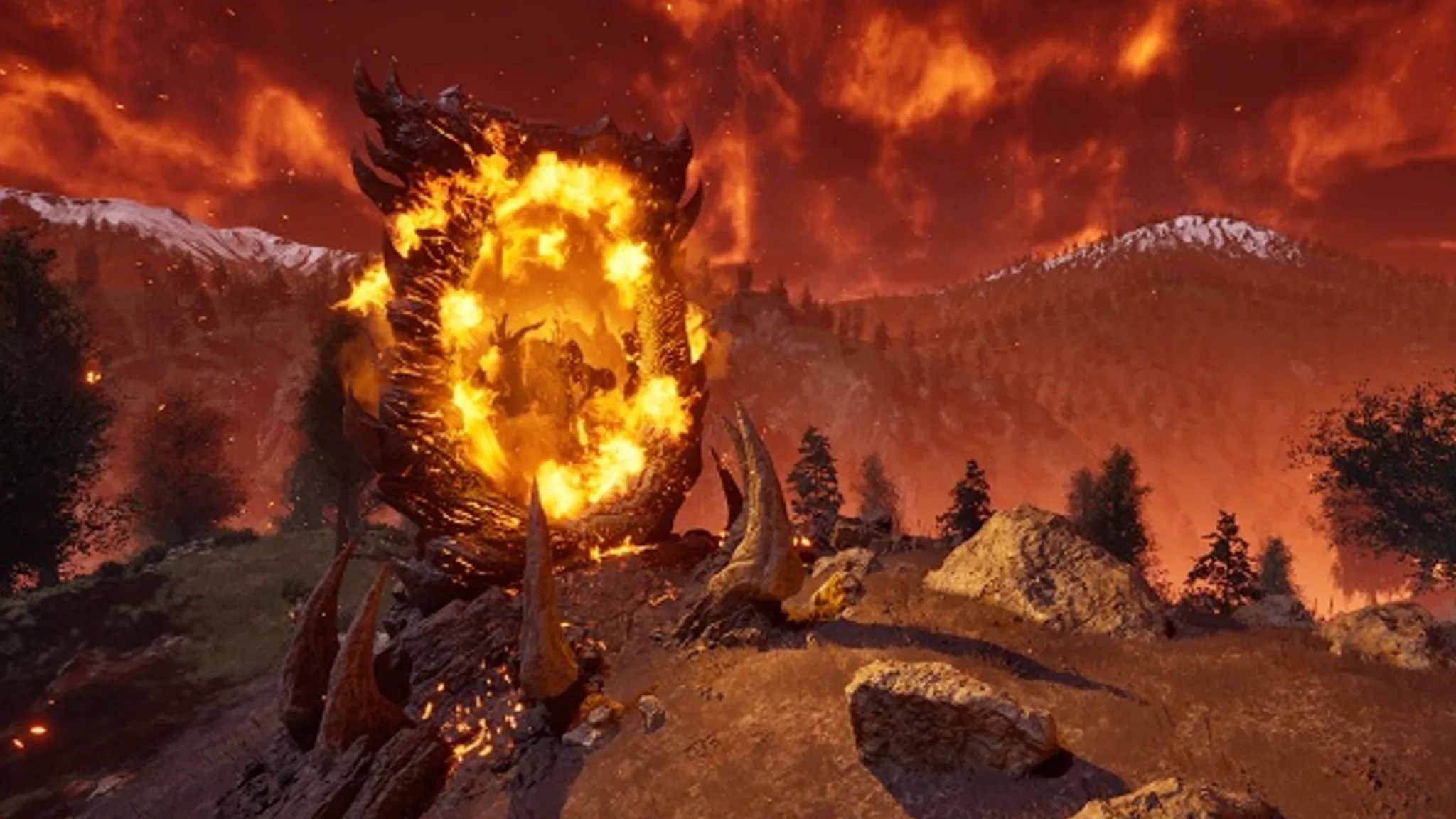The Elder Scrolls IV: Oblivion features numerous gameplay systems that aren’t immediately obvious to newcomers. Many vital mechanics remain undisclosed during initial gameplay hours. This comprehensive overview reveals seven fundamental aspects that the game fails to properly explain.
Character Origin Significance
The original 2006 version of Oblivion incorporated subtle statistical variations based on gender selection. For instance, male Argonians received initial Speed advantages, while females of the same race started with enhanced Intelligence. These nuances weren’t clearly presented during character creation.
The 2025 remastered edition has transformed this system. Rather than gender-based statistical differences, each race now offers two distinct Origin options. Every Origin includes concealed Attribute bonuses that only become visible when finalizing race selection. Thorough evaluation of each Origin option is vital, as these initial bonuses can substantially influence a character’s starting capabilities.
Enemy Level Scaling
In Oblivion, advancing any Major Skill by ten points allows characters to rest and trigger a level-up. This mechanism enables improvement of core Attributes like Magicka, Health, and Stamina. However, enemies throughout the game world also strengthen proportionally with player advancement, potentially creating difficulty spikes if leveling isn’t managed effectively.
Players can advance levels by focusing on non-combat abilities such as Acrobatics, Mercantile, or Athletics, potentially resulting in characters gaining levels without enhancing their combat effectiveness. Some players exploit certain mechanics, including repetitive jumping or casting minor spells, to rapidly gain levels. However, neglecting combat abilities during this process often leads to being overwhelmed by increasingly powerful opponents.
To maintain combat effectiveness, it’s recommended to develop both combat and utility-based Major Skills. Incorporating combat-focused abilities like Blade, Marksman, or Destruction magic ensures continued battlefield competence.
The remastered version offers an improved leveling system. Players now have the ability to allocate specific points across up to three Attributes during each advancement, providing greater strategic control over character development.

Vampirism Dangers
Combat encounters in Oblivion frequently carry disease risks. Unlike poisoning effects, diseases negatively affect specific Attributes or Skills and require potions, shrines, or magical intervention to remedy. Among the most hazardous and easily overlooked ailments is Porphyric Hemophilia, contracted from vampires and their servants.
Without treatment within three days, affected characters transform into vampires. Initially, Vampirism provides certain advantages, including immunity to other diseases and paralysis, alongside minor statistical enhancements. However, as the condition progresses, disadvantages emerge—sunlight exposure causes damage, and NPC interactions become difficult or impossible.
A cure exists for Vampirism, but obtaining it demands considerable effort and time. Unless specifically planning a vampire playthrough, carrying disease-curing potions and exercising caution in vampire territories is strongly advised.
Reputation System Impact
Oblivion silently monitors Fame and Infamy throughout gameplay. These metrics influence how NPCs respond to the character, determine eligibility for certain quests, affect the ability to purchase properties in various cities, and control access to magical structures such as Heaven Stones.
Fame accumulates through completing main and side quests, while Infamy increases through criminal actions and advancement in the Thieves Guild and Dark Brotherhood. Bounties also contribute to Infamy totals.
When Infamy surpasses Fame, characters lose access to Altars of the Nine Divines located in city chapels. However, Fame can be increased by progressing through questlines, and Infamy can be eliminated by completing the Knights of the Nine pilgrimage.
A special item acquired from the Thieves Guild enables characters to adopt a secondary identity. While equipped, any Infamy gained affects only that persona, protecting the character’s primary reputation from negative consequences.
Guild Membership Responsibilities
Although seemingly obvious, committing offenses within guilds the player has joined—such as theft or attacking fellow members—results in immediate membership suspension. This principle applies across all organizations, including the Fighters Guild, Mages Guild, Arena, Thieves Guild, and Dark Brotherhood.
Reinstatement possibilities exist but typically require completing assigned tasks or paying penalties. Most guilds permit only three violations before issuing permanent expulsion, making repeated infractions particularly consequential.
Strategic Storage Solutions
Inventory management presents an ongoing challenge in Oblivion, particularly during early gameplay. While items can be placed in any container, many reset periodically, causing stored possessions to vanish. Only specific containers provide permanent, safe storage.
Purchasing a house in one of Cyrodiil’s major cities offers the best storage solution. Even the modest Shack in the Imperial City Waterfront provides secure storage options. Before acquiring property, these locations offer reliable alternatives:
Weynon Priory Chest: After engaging with Jauffre during early main quest progression, players gain access to a chest that safely preserves items.
Aleswell Inn Room: Completing the Zero Visibility side quest rewards players with a permanent room featuring a personal Chest of Drawers.
White Stallion Lodge: Earned through the Knights of the White Stallion questline near Leyawiin, the lodge’s containers offer safe storage, though Mazoga the Orc may consume any food items left unattended.

Managing Stolen Property
Items taken from others—marked with a red icon—are classified as stolen, and most merchants refuse to purchase them. This restriction applies to stolen weapons, armor, and ingredients alike.
Several methods exist for handling illegally acquired goods:
Thieves Guild Membership: Joining this organization unlocks access to specialized merchants called fences, starting with Ongar the World-Weary in Bruma. These individuals purchase stolen merchandise, though their available gold remains limited. Advancing through guild ranks provides access to additional fences with greater purchasing capacity.
Enchantment Technique: Unenchanted weapons or armor pieces can receive a single enchantment to eliminate their stolen designation.
Alchemy Application: Stolen ingredients can be transformed into potions, which lose their stolen status, making them legally marketable.
Value-to-Weight Optimization
When looting or pickpocketing, the most efficient approach prioritizes items with favorable value-to-weight ratios. A lightweight gem worth modest gold often proves more valuable than bulky weapons with similar value.
During pickpocketing attempts, item weight directly affects success probability. Lighter objects like gold coins, keys, and alchemy components are easier to steal successfully, while heavier items such as armor pieces present substantially greater challenges.
Nevertheless, stealing a guard’s armor remains technically possible. Guards sleep in civilian clothing, temporarily removing their equipment. With sufficient stealth skills and appropriate bonuses, this high-risk theft can be accomplished.
Understanding these lesser-known game mechanics provides strategic advantages in The Elder Scrolls IV: Oblivion. By recognizing and adapting to these hidden systems, players can navigate Cyrodiil more effectively and substantially enhance their overall gameplay experience.
Also read our The Elder Scrolls IV: Oblivion review.
